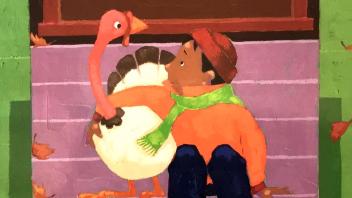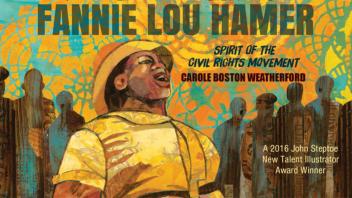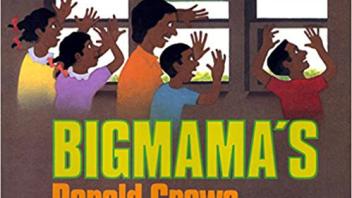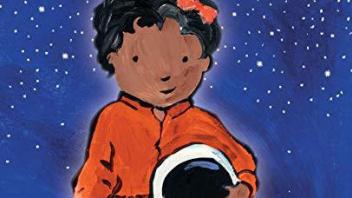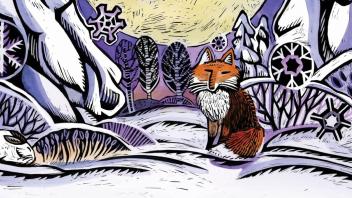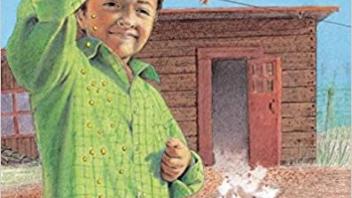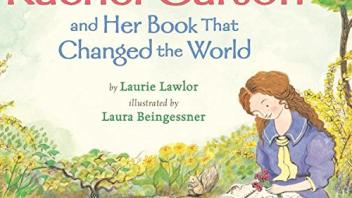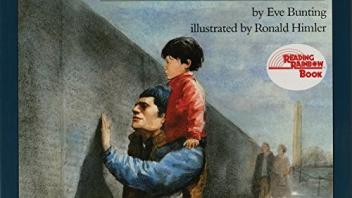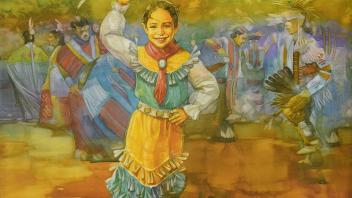
About Traci Sorell
NOTE: This excerpted biography is republished from Traci Sorell’s official website. Visit the site to learn more about Traci’s childhood, books, and accompanying teacher guides — and some fun facts about the author!
Traci lives with her family in the Cherokee Nation, out in the country like she did as a child. Back then, she had geese, chickens, horses, dogs and cats. Her mother’s Cherokee family has been in the area since the removal of most Cherokee people from their southeastern homelands in 1838. Traci grew up hearing stories about her ancestors and looking at their photographs with her elisi (eh-lee-see), grandma. Now her son does that with his elisi in addition to fishing in the nearby lake and learning their Cherokee culture.
When Traci was a teenager, her family moved to Southern California, [where she did] more writing, both in class and on the high school yearbook staff. She was the first in her family to graduate from college. Later, her mom, sister and brother got their degrees too.
Before she began writing for children, Traci’s work focused on helping Native Nations and their citizens. She wrote legal codes, testimony for Congressional hearings, federal budget requests, grants and reports. She continues that work by writing stories for young people and encouraging other Native writers and illustrators to share theirs. When Traci was a child, she never read culturally accurate books about the Cherokee or any other Indigenous peoples. The stories and poems she writes now reflect her mission to add to the canon of literature showing that Native Nations and their citizens still exist and thrive today.
Books by this author

A family, separated by duty and distance, waits for a loved one to return home in this lyrical picture book celebrating the bonds of a Cherokee family and the bravery of history-making women pilots. At the mountain’s base sits a cabin under an old hickory tree. And in that cabin lives a family — loving, weaving, cooking, and singing. The strength in their song sustains them as they wait for their loved one, a pilot, to return from war. The author’s note pays homage to the true history of Native American U.S. service members like WWII pilot Ola Mildred “Millie” Rexroat.
At the Mountain’s Base

Evocative illustrations and lyrical language follow a young Cherokee child as she cheerfully moves from an urban area to a home where there’s “room to run.”
Being Home

Mary Golda Ross designed classified airplanes and spacecraft as Lockheed Aircraft Corporation’s first female engineer. Find out how her passion for math and the Cherokee values she was raised with shaped her life and work. Cherokee author Traci Sorell and Métis illustrator Natasha Donovan trace Ross’s journey from being the only girl in a high school math class to becoming a teacher to pursuing an engineering degree, joining the top-secret Skunk Works division of Lockheed, and being a mentor for Native Americans and young women interested in engineering. The narrative highlights Cherokee values including education, working cooperatively, remaining humble, and helping ensure equal opportunity and education for all.
Classified: The Secret Career of Mary Golda Ross, Cherokee Aerospace Engineer

The true story of John Meyers and Charles Bender, who in 1911 became the first two Native pro baseball players to face off in a World Series. This picture book teaches important lessons about resilience, doing what you love in the face of injustice, and the fight for Native American representation in sports.
Contenders: Two Native Baseball Players, One World Series

Regina Petit’s family has always been Umpqua, and living on the Grand Ronde Tribe’s reservation is all ten-year-old Regina has ever known. But when the federal government enacts a law that says Regina’s tribe no longer exists, Regina becomes “Indian no more” overnight. Now that they’ve been forced from their homeland, Regina’s father signs the family up for the federal Indian Relocation Program and moves them to Los Angeles. Regina finds a whole new world in her neighborhood on 58th Place. She’s never met kids of other races, and they’ve never met a real Indian, and Regina comes face to face with the viciousness of racism, personally and toward her new friends. In this moving middle-grade novel drawing upon Umpqua author Charlene Willing McManis’s own tribal history, Regina must find out: Who is Regina Petit? Is she Indian, American, or both? And will she and her family ever be okay?
Indian No More
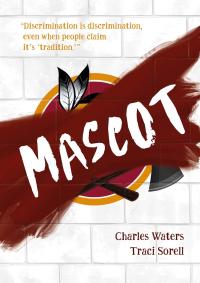
What if a school’s mascot is seen as racist, but not by everyone? In this compelling middle-grade novel in verse, two best-selling authors tackle this hot-button issue. In Rye, Virginia, just outside Washington, DC, people work hard, kids go to school, and football is big on Friday nights. An eighth-grade English teacher creates an assignment for her class to debate whether Rye’s mascot should stay or change. Now six middle schoolers — all with different backgrounds and beliefs — get involved in the contentious issue that already has the suburb turned upside down with everyone choosing sides and arguments getting ugly. Told from several perspectives, readers see how each student comes to new understandings about identity, tradition, and what it means to stand up for real change.
Mascot

Young children are invited to a powwow in this 1-to-10 counting board book — beginning with one car traveling to the powwow to 10 tribal citizens enjoying the celebration. The indigenous author and illustrator team that wrote Powwow Day (for slightly older readers) now introduce younger readers to the powwow tradition.
On Powwow Day

In this uplifting, contemporary Native American story, River is recovering from illness and can’t dance at the powwow this year. Will she ever dance again? Follow River’s journey from feeling isolated after an illness to learning the healing power of community. Additional information explains the history and functions of powwows, which are commonplace across the United States and Canada and are open to both Native Americans and non-Native visitors.
Powwow Day

The descendant of Cherokee ancestors who had been forced to walk the Trail of Tears, Wilma Mankiller experienced her own forced removal from the land she grew up on as a child. As she got older and learned more about the injustices her people had faced, she dedicated her life to instilling pride in Native heritage and reclaiming Native rights. She went on to become the first woman Principal Chief of the Cherokee Nation.
She Persisted: Wilma Mankiller

Join the Cherokee people as they celebrate each season of the year and special occasions, as well as the daily activities for which gratitude is expressed. Bold hues and flat forms distinguish the naïve illustrations. Cherokee words, based on Sequoyah’s syllabary (written symbols for syllables), are sprinkled throughout. Additional information concludes this handsome and unique glimpse of contemporary Native life written by a Cherokee poet.
We Are Grateful: Otsaliheliga

Using a class activity as a framework, the history of Indigenous people in the United States is presented. Each “presentation” concludes with a resounding “We are still here” despite the difficult history. Simple but bold illustrations and extensive backmatter conclude this important introduction to an often-forgotten part of American history.
We Are Still Here: Native American Truths Everyone Should Know
Find this author’s books on these booklists
Themed Booklist
A Harvest of Books for Thanksgiving
Themed Booklist
Biographies for Women’s History Month
Themed Booklist
Friendship, Family, and Culture
Themed Booklist
Holiday Buying Guide 2019
Themed Booklist
Holiday Buying Guide 2024
Themed Booklist
Remarkable Women
Themed Booklist
Remembrance and Giving Thanks
Themed Booklist
Stories and Voices of Contemporary Native Americans
Themed Booklist
Summer Reading Guide 2021
Themed Booklist
Summer Reading Guide 2024
Themed Booklist
